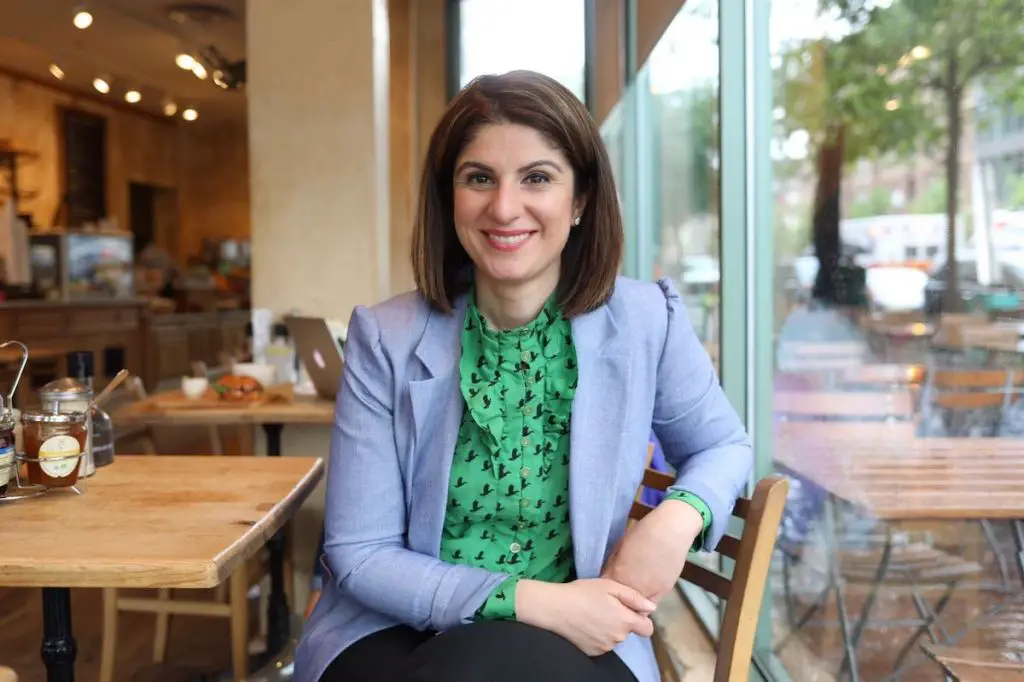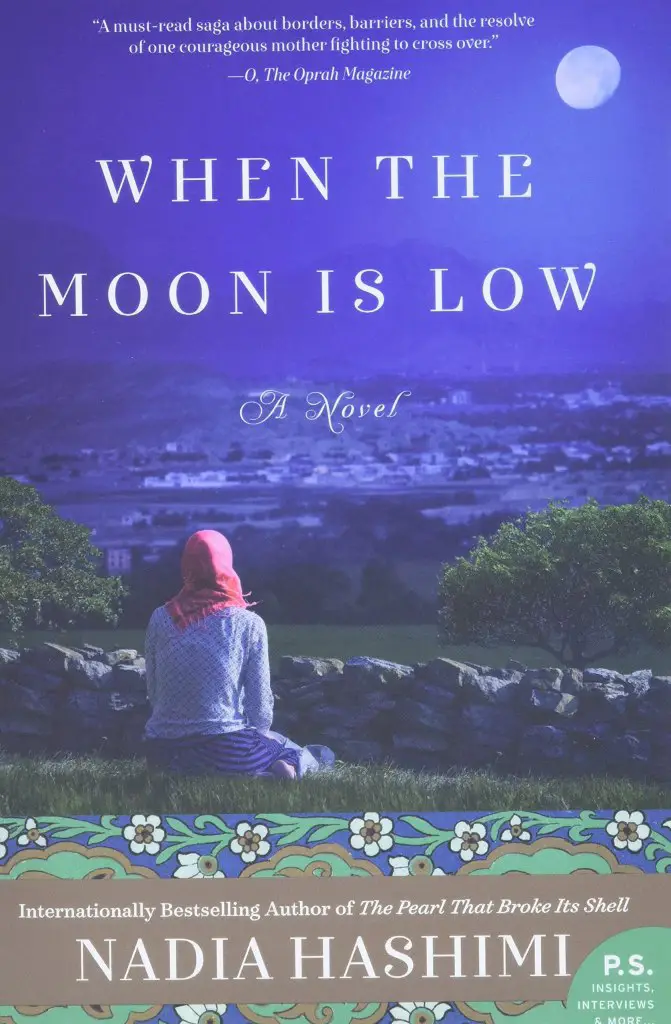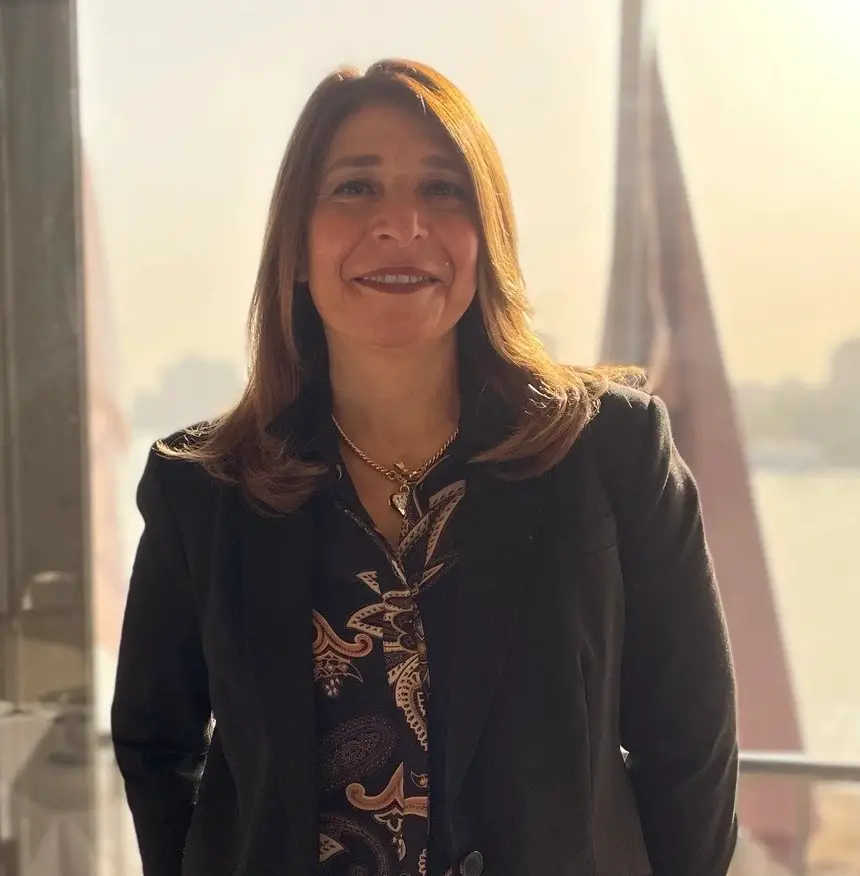August 12, 2023
Dr. Rasha Samir

“How wretched it is to have a homeland, yet despite that, you leap over barriers as a refugee in search of a home.”
These words are not the beginning of a sad song, nor are they a verse of poetry penned by one of the exiled poets. These words are merely a quote from a poignant fictional novel that expresses a reality even more harrowing. These words are yet a history repeating itself, as if those who once wrote it with a sword have returned today to write it with a Kalashnikov.
Those are words written by the Afghan great author and pediatrician Nadia Hashimi in one of her literary works that exposes the ugly and sorrowful world of a country that lost its identity under the power of terrorism. The author was born in New York in 1978, she holds an American citizenship, and was born to Afghan parents who migrated to America in the early 1970s. It’s as if her life outside her homeland made her vision clearer, as for the events that haunt us internally do not allow us to see the truths except in a distorted manner.
The beginning of the Story:
The story of Afghanistan is a tragedy of a nation caught in the grip of extremism, backwardness, and brutality. It is a country that has fallen into the hands of “Taliban”, the Islamic fundamentalist group internationally condemned for its harsh implementation of Islamic law that they created to suit their goals and its brutal treatment of the Afghan people in all their diversity. The previous Afghan government accused them of being a group of “Khawarij”, distorting the image of Islam. The greatest tragedy is what they have done to the women of Afghanistan – the cruelty, harshness, marginalization, and the denial of education for girls and women, effectively pushing Afghan women two decades back.
The exclusion of girls from basic education is not the end of the story. It also extended to their exclusion from universities.
Today, the situation has deteriorated to the absence of jobs available for women. Following the movement’s instructions, women are even prohibited from selling bread!.
This is in addition to the restrictions imposed on women’s movement and presence in most places. Novelist Nadia Hashimi expressed in one of her interviews:
“Taliban aims to erase Afghan women from public life, limiting their role to childbearing, what is happening now is a painful picture for Afghan women. The Taliban seeks to erase the progress and awakening of women after two decades, and the decision to ban girls from education affects the formation of Afghan families. The more educated the mother is, the better she can raise her children and provide them with good education, leading to healthier families”
I agree with her, the target is not yesterday or today, it is forever.
From here, the physician and author decided to undertake the responsibility of transforming the harsh image of what happened to the daughters of Afghanistan into narratives. Her goal is to make words her most influential weapon in this battle against retrogression and backwardness. This is the true role of any creator or intellectual – to bring about change through their art.
The novelist has written several novels. Kalimat Publishing House translated three of them into Arabic: “The Pearl That Broke Its Shell” in 2014, “House Without Windows” in 2016, and “When the Moon is low” in 2015. The Egyptian translator Iman Hirzallah adeptly captured the essence of the novels, providing a fluid and engaging Arabic rendition. Personally, I’m one of those who believe that translation sometimes robs the text of its spirit and original flavor, yet Iman managed not only to preserve but to enhance the value of the original work, creating a precise parallel text.
Last but not least, a special acknowledgement is due to Kalimat Publishing House, a Kuwaiti publishing house with branches in Kuwait, Saudi Arabia, Bahrain, and the UAE. with a strong presence in all Arab book fairs. The truth is that they are doing a remarkable job of translating outstanding works into Arabic, making them accessible to Arab readers. This is an important Arab cultural role worthy of praise.
The Pearl That Broke Its Shell

“The Pearl That Broke Its Shell” is the debut novel of the author. published in 2014 and has become one of the best-selling books globally. It has been translated into several languages, including French, Italian, Norwegian, German, Turkish, and Hungarian. yet translating it into Arabic was an important step, given that it’s a novel worth reading.
The novel begins with verses from the poem “A Kiss We Want” by Jalal eldin El Rumi, where he says:
“The sea pleads with the pearl to break its shell.”
From here, the title emerges as the author delves into the events. The novel portrays two women whose stories intersect, offering a depiction of the status of women in Afghanistan from the past century through the character of “Shakiba.” The narrator, her story intersects somehow with the present through the character of “Rahima,” each with her own path.
Nine-year-old Rahima belongs to a family comprising an addicted father and a mother who gave birth to five daughters, including her older sister “Shahla.” Next is “Parveen,” two years older than Rahima, followed by two younger sisters. The family repeatedly attempts to have a boy, hoping for a son in their future, but all efforts are in vain. Families that don’t produce boys in Afghanistan have no standing, and girls are denied an education due to the absence of a male protector during their journey to school, safeguarding them from male harassment. as a solution, Aunt “Shaima,” who suffers from a congenital back problem preventing her from marrying, proposes that Rahima be transformed into a boy, known as ” bacha posh ” a prevalent phenomenon in Afghan families unable to produce sons. An underaged female is transformed into a boy to assume family responsibilities until puberty, after which she reverts to her original state.
Rahima is granted an opportunity none of her sisters has had: she is allowed to attend school, interact with boys, and play football with them, as they believe she’s a boy like them. Through Aunt “Shaima’s” voice, the narrative shifts to “Shakiba’s” story, who faces various struggles in her life. Shakiba belongs to a family in a rural area, with older siblings, and the family dissolves entirely when a cholera outbreak claims the lives of all three children. The mother, grieving their loss, dies, leaving only Shakiba and her father. Shakiba helps her father in the fields and works like a boy until his death. The secret of her true gender is discovered by her father’s relatives, leading her to live with her grandmother, treated as a servant. Eventually, her family gives her away to a wealthy man in return for their accumulated debts. She works as a servant in his house, and the story of Shakiba’s life unfolds with twists that shatter her dreams and identity. She finds herself guarding the harem of the royal palace in Kabul, donning male attire like a guard to protect the king’s women and others, an occurrence that forever changes her life’s trajectory.
The novel spans 546 pages of a medium-sized format. It is skilfully written, capturing the intricate details of human pain and suffering to depict the painful condition of women in Afghanistan.
When the Moon is low

(( Afghanistan is a like a woman too beautiful for her own good ))
Her second best-selling novel world wide “When the Moon is low” was published in 2015.
It was praised by Opera magazine as the story of a courageous Afghan woman who embarks on a journey to save her family. The novel provides a detailed and poignant description of Afghan society before and after the Taliban’s control of power. The story is narrated by
” Fereiba ” who grows up motherless and under the care of a stepmother who appears harsh most of the time. Fereiba’s real struggles begin after her marriage to a successful engineer and the birth of her two children. While waiting for her third child, the Taliban take over the government. Fereiba, the knowledgeable narrator, recounts moments in which Afghan women pay the price for a crime they didn’t commit, as an extremist group takes hold of power. Fereiba’s decision to save her children is also her decision to leave, marking the start of a harrowing journey across countries. The novel’s descriptions are breathtaking, keeping the reader wondering: Will Fereiba survive leaving her homeland for the unknown, only to save the humanity within her?
The novel travels from Afghanistan to Iran, Athens, and Europe, and the reader follows along with their imagination through the maze of the author’s brilliant narrative, painting the image of Afghanistan, hearing the gunshot sounds, and almost smelling the blood of children covering Afghan land.
Fereiba is simply Afghanistan—she is the heroine, she is the land, she is the past, and yet she is the dream.
House Without Windows

Her third novel “House Without Windows “ was published in 2016. The novel revolves around the story of “Ziba” a devoted wife to her husband of twenty years, and a loving mother. One morning, she is accused of killing her husband in the backyard of their house. Despite her innocence, she is imprisoned and finds herself alone as everyone turns against her. In prison, she embarks on a journey of waiting, anticipation, and struggle for freedom. Despite its challenges, the journey leads her to discover a wide spectrum of women who have found refuge in the harsh prison from the cruel outside world. Each woman within those high walls has a story with meaning, stories of oppression, injustice, torture, and psychological abuse that women endure. Ziba lives within this world, far from her children, awaiting hope. Here, enters Yusuf, a lawyer who lived in New York, carrying his homeland’s cause within him. He experiences the events unfolding in his country from afar but decides to return to help his people. He believes that one person can make a difference, that one fighter can defeat backwardness without carrying arms. Reason and enlightenment are the winning weapons in this battle against darkness.
Yusuf volunteers to defend Ziba, leading him to uncover truths he never expected. Why did Ziba kill her husband? Was his death truly deserved? Or is she hiding behind a mask of innocence to escape her action? Will their suffering triumph over the tyranny of a bloody regime?
It’s a story that had me flipping through the pages to reach its end, applauding the author for her literary craftsmanship, simple meanings, and fluid narration, while bowing to the humane meanings she created with her intelligent pen.
Two Faces of One Coin:
The talented Afghan novelist Khaled Hosseini, undoubtedly the most famous writer in the world, has been at the forefront of unveiling what goes on behind closed doors in Afghanistan through his novels.
His works have topped bestseller lists for years, including “The Kite Runner,” “A Thousand Splendid Suns,” and “And the Mountains Echoed.” And today, like yesterday, Nadia Hashimi’s name shines, as she presents works that touch emotions and skilfully highlight the issues of her homeland.
Khaled Hosseini, wrote the introduction to her novel (The pearl that broke its shell) says:
“First and foremost, it’s a delicate and wonderful family story,
Her captivating tale, spanning multiple generations, portrays Afghanistan in all its mysterious and confusing glory, reflecting the ongoing struggles of Afghan women to this day “.
I truly agree with Hosseini and invite you all to read the complete set of novels written by Nadia Hashimi.
I also urge the publisher to continue translating this important collection of novels that excellently depict the lives of those who were executed a thousand times under the sword of terrorist rule.
Nadia Hashimi is a writer worth reading for.

Dr. Rasha Samir is a Writer, Dentist & Journalist & Best-selling Novelist. She graduated from the Faculty of Dentistry. Together with her practice as a dentist, she also pursued her passion for writing. She is a renowned author who published 10 literary works. Her novels have been on the bestsellers’ list.
Over the past 17 years, she wrote for several newspapers and magazines like (Sabah El Kheir magazine), (Nahdet Misr newspaper) and (Sot El Oma newspaper). She also writes a weekly column for Elfagr newspaper.
Dr. Rasha is a member of the Egyptian Writer’s Society, member of Farouk Hosny Foundation for Culture and Arts. She is also the Head of Ihsan Abd Elkodous Cultural Salon. She participated as a spokesman in cultural events and book fairs held in London, Abou Dhabi, Sharjah, Tunisia, Jordan, and Morocco.
You may visit her Facebook page here
Rasha Samir drrashasamir@gmail.com
***If you liked this article, don’t forget to subscribe to our newsletter and receive our articles by email

Please can you subscribe my name again because I asked you to delete it when I was unable to read my messages
LikeLike